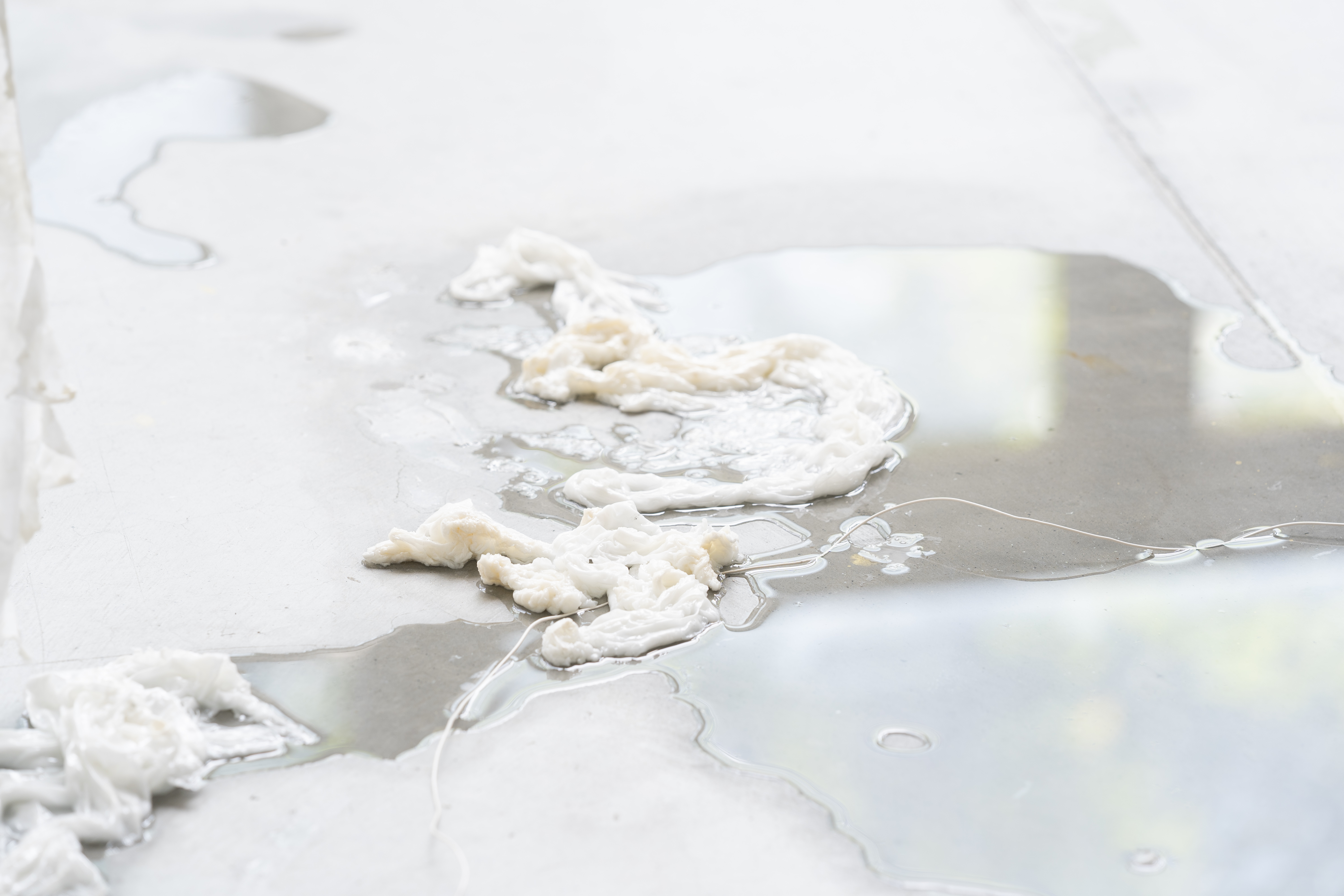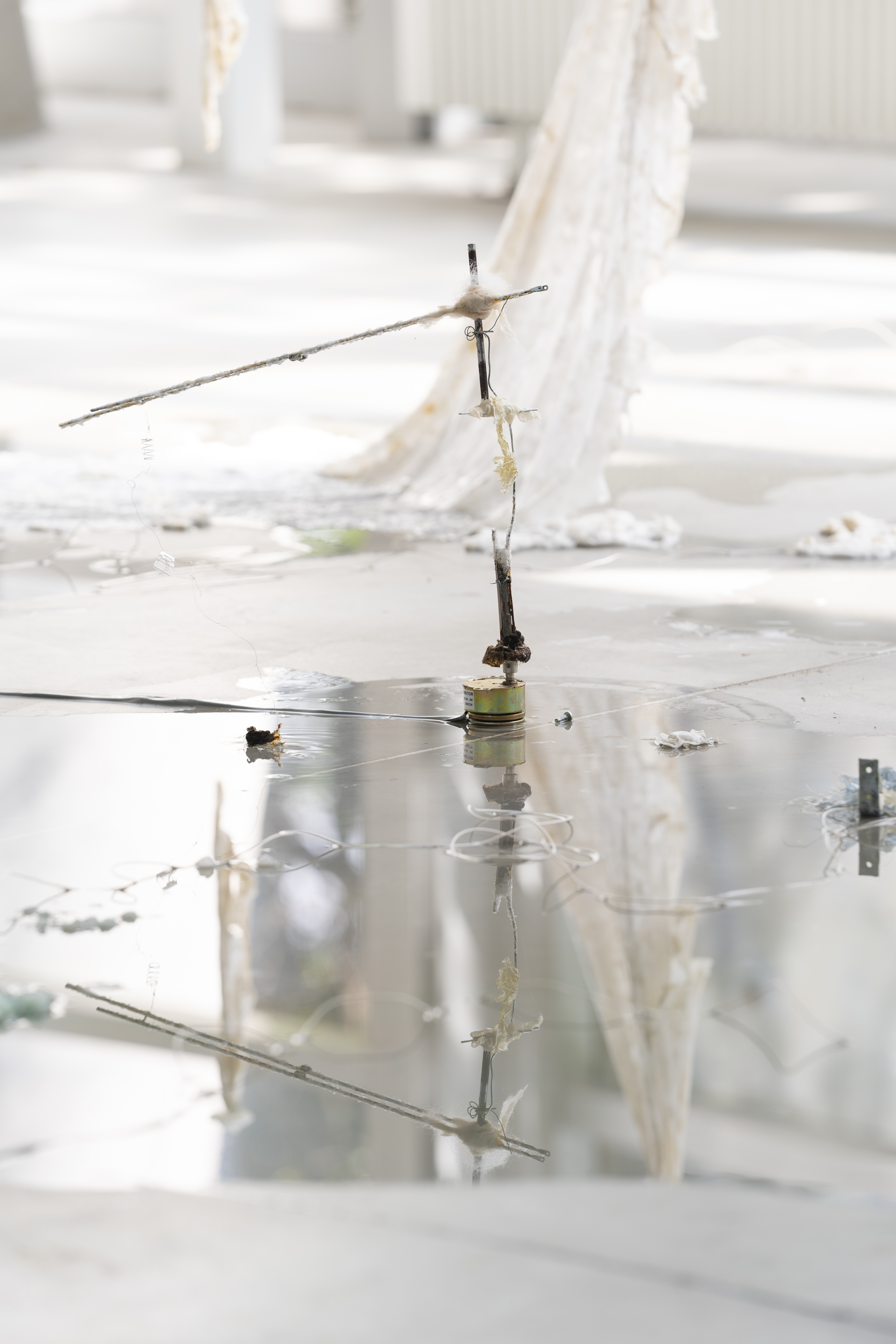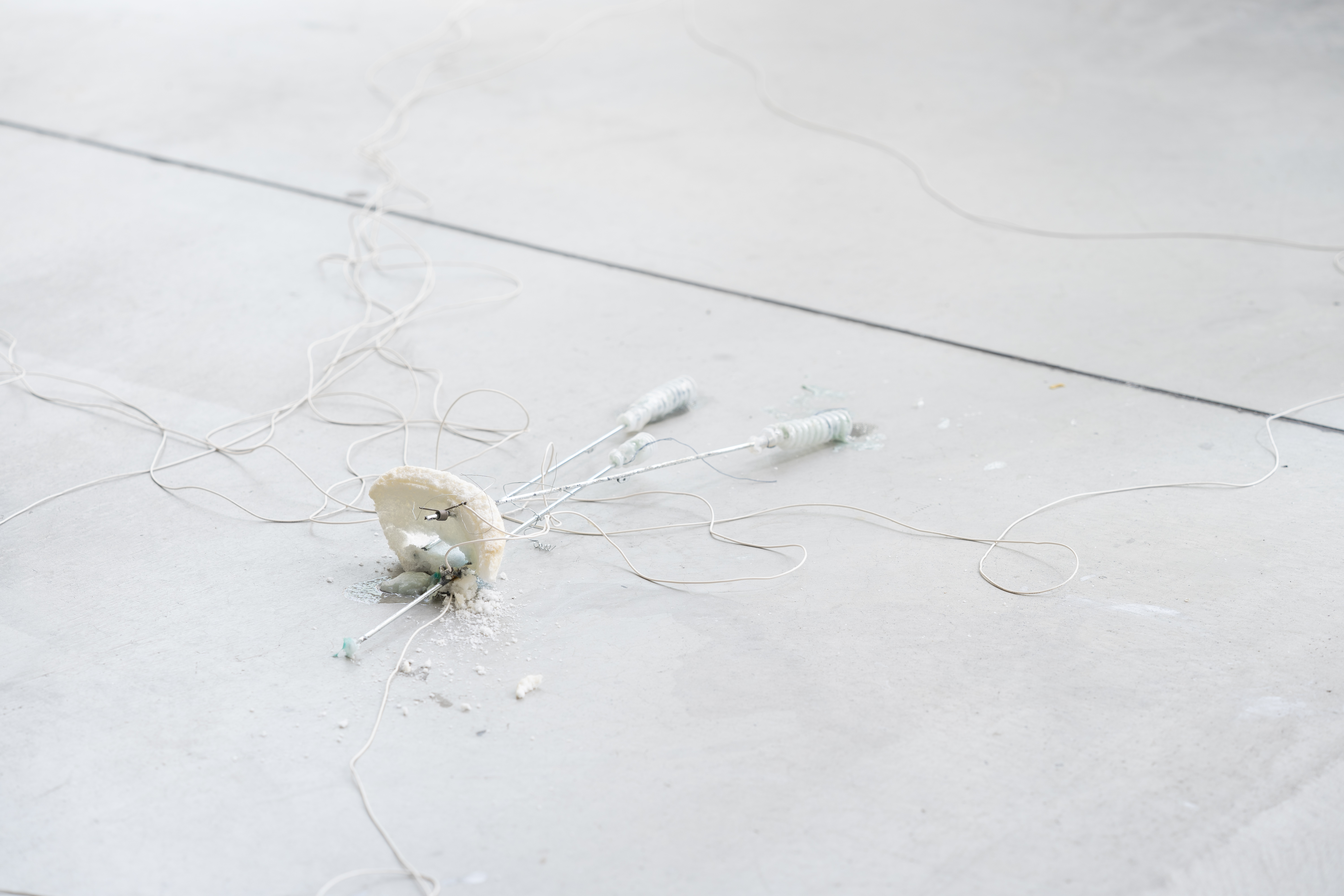
Nyoronyoro-bara-
pichapicha
Machines (~2021/Tokyo)
Material: Electronic components, tapioka Powder, agar, water, steel, glycerol, wood branches, gelatine, etc.
Nyoro-bara-pichapicha machines is a site-specific work, which explores the idea of “machines with care” formed between the environment, local community and human hands. After the advent of capitalism, the “machines” which were once unstable, improvised, and often transitory turned into stable, perfected, isolated entities. Their circuits and hard exterior became more closed so that the users wouldn't touch, and uniform plastic covers were adopted suitable for mass production. Stability, eternity, closedness- considering those patriarchic autistic features expected in machines overlaps with the desire of human beings that created them, the artist aims to open a small crack to both by finding the alternative in the representation of machines.
During the process of making Nyoro-bara-pichapicha machines, the artist collected various materials (branches, soil, city waste such as a broken piece of wall) while walking around the city. By adopting city ruins and local organic material inside the machines, she attempts to embrace the practice of “repair" into the world-making. In addition, as the work has organic substances inside the circuit, the work adopts the process of oxidation and corrosion. Unlike the machines we have in our society where functionality, endurance and stability are the priority, the machines here are fluid, unstable and constantly responding to the outside climate. Parts of the circuit will be submerged in water, causing organic substances to dissolve over time. In this process, the moisture will also soak into the wall, obscuring the contour of the machine itself.
Through exploring the creation of a temporal machine that corresponds with the environment, the work proposes a speculative future from the eco-feminist point of view, in which technology does not exist to divide but to coexist with their environments, humans and more-than-humans counterparts. Technological creations and machines can too uphold the concepts of locality, sustainability and care.
===============
The installation was shown together with a speculative video. The short video showed machines created in the kitchen from organic food and ephemeral materials. It also included a conversation between the artist and her mother, who was cooking breakfast for the family next to her. The work questions the traditionally male-dominated industry of making machines, and draws attention to the process of women’s labour, its relationships with privacy and intimacy between humans and other-than-human agencies.


